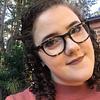Take a photo of a barcode or cover
emotional
informative
reflective
slow-paced
Wow. Not a detail spared. Her poems and writing thoughtfully examined as the events of her life influenced them. The last section of the book was so powerful to me. It was heartbreaking.
I am so glad I read (listened) to this. It took a woman I admired but knew very little about and made her flesh and bone, genius, pathos, and all.
I am so glad I read (listened) to this. It took a woman I admired but knew very little about and made her flesh and bone, genius, pathos, and all.
5/5, one of the best books I've ever read. I'll need some time before I can write about this though
Heather Clark leaves NO stone unturned in her biography of Sylvia Plath. Seriously, she knows Sylvia's first words, lays out her family tree and ancestry, and probably knows Sylvia better than people who actually knew her.This is a must-read for all Plath fans who mourn the work we could have seen her produce and want insight into her life. It's a loooooong ride but so incredibly worth the time.
Absolutely incredible. This book appreciates Plath as an artist rather than a suicide victim- it tries and succeeds to destroy the mythical reputation Plath holds as a proto-feminist angel of death. Plath was the greatest female poet of the 20th century before she was a case study.
Read for the Booktube Prize. Star rating to come after the judging.
what an amazing book. it illuminates so much of sylvia’s life and death... i have always had troubles in understanding her work but this book is a perfect combination of autobiography and sort of like an analysis of her works based on the different periods of her life? truly amazing!
informative
slow-paced
challenging
dark
emotional
informative
reflective
sad
slow-paced
This was a fabulous biography. Clark did an amazing job bringing the reader along on the journey of Plath’s life. At first I was intimidated by the length as I have a lot of reading on my plate right now, but it was well worth the read. In fact, I want to read it again.
I get that Clark did a good job of working to stay (for the most part) neutral to events in Plath’s life and gave a lot of good sources and reasoning for her conclusions.
It was very helpful to learn about seemingly every detail possible about her life and how that transformed her and her poetry. I also believe Clark did a great job in analyzing and discussing Plath’s poetry in specific terms. Although I am very interested in Plath and her poetry, I will readily admit that poetry is my weakest area in reading. So it was encouraging to have such a well-read guide.
Through my reading of this I have purchased some of Plath’s poetry and short stories. I had previously read “The Bell Jar” and loved it. So to be encouraged to read her poetry work, and main focus, is a wonderful feeling.
With regards to Plath’s life and illness—suicide can be a very difficult topic to discuss and I found Clark’s views on Plath’s illness to be respectful and well researched. I think for those who have never contemplated suicide before, it can be very difficult to understand how someone can reach that point, and Clark makes that bridge easier to see over. From the onset of the book she talks about Plath’s suicide and doesn’t use it as a shock value or something to sweep under the rug.
This is definitely a book I will recommend to anyone interested in Plath and her work.
I get that Clark did a good job of working to stay (for the most part) neutral to events in Plath’s life and gave a lot of good sources and reasoning for her conclusions.
It was very helpful to learn about seemingly every detail possible about her life and how that transformed her and her poetry. I also believe Clark did a great job in analyzing and discussing Plath’s poetry in specific terms. Although I am very interested in Plath and her poetry, I will readily admit that poetry is my weakest area in reading. So it was encouraging to have such a well-read guide.
Through my reading of this I have purchased some of Plath’s poetry and short stories. I had previously read “The Bell Jar” and loved it. So to be encouraged to read her poetry work, and main focus, is a wonderful feeling.
With regards to Plath’s life and illness—suicide can be a very difficult topic to discuss and I found Clark’s views on Plath’s illness to be respectful and well researched. I think for those who have never contemplated suicide before, it can be very difficult to understand how someone can reach that point, and Clark makes that bridge easier to see over. From the onset of the book she talks about Plath’s suicide and doesn’t use it as a shock value or something to sweep under the rug.
This is definitely a book I will recommend to anyone interested in Plath and her work.








